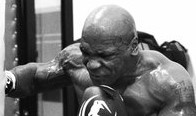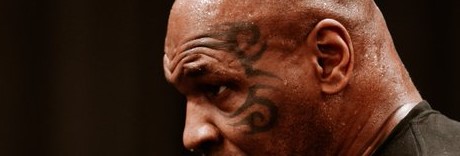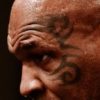By Ivan G. Goldman
Boxing’s civil war is jamming up the welterweight division like a bridge out of New Jersey. That’s why Manny Pacquiao’s next fight may be against Timothy Bradley April 12.
The ranks of top guys are growing thin, something Pacquiao’s trainer Freddie Roach has pointed out. Worse, fighters are divided into two separate camps – HBO and Showtime, narrowing choices further.
Pacquiao, 55-5-2 (38 KOs), promoted by Top Rank and confined to HBO, can’t consider rising star Keith Thurman, for example, who’s promoted by enemy Golden Boy and now confined to Showtime.
Juan Manuel Marquez hasn’t retired, but he’s hit 40. He didn’t look good when he lost a split decision to Bradley, though he yelled robbery. Besides, he wants his fights against Pacquiao to be remembered for the last second of the sixth round of the fourth bout, when he stopped his long-time adversary with a right hand seen round the world.
Adding to bottleneck by civil war is another deleterious trend that’s taken hold in the last few years. Top guys won’t get out of bed to train for a fight unless someone forks over pay-per-view money. For a long time even the more popular champions were willing to fight under the banner of HBO or Showtime with no extra charge to network subscribers. Sometimes they would alternate shows – a tune-up on subscriber TV, then a bigger fight on PPV.
Champions like Roy Jones, very talented but not terribly popular among fans, were pretty much confined to subscriber telecasts because there was insufficient demand. Jones may have fought a string of cops and construction guys, but at least they weren’t PPV shows.
When Pacquiao and Bradley look around for opponents they wind up looking at each other and a very few others like Ruslan Provodnikov, a junior welter who lost a close one to Bradley last March before stopping Mike Alvarado in October. Bradley hasn’t been a terribly successful PPV draw, but his popularity should rise in the wake of his gutsy victory over the fierce Russian in an action-packed contest.
The trouble is, when Bradley won his hugely controversial split decision over Pacquiao it wasn’t a terribly good fight. That’s not likely to help PPV numbers for a rematch. But neither fighter can, for example, look to Number One welter and pound-for-pound king Floyd Mayweather 45-0 (26 KOs), whose latest excuse for not fighting Pacquiao is that he doesn’t like his promoter Bob Arum.
Even some of Floyd’s most devoted fans couldn’t help noticing that he was curiously delighted when Marquez kayoed Pacquiao rather than disappointed that it upset what would certainly have been his biggest payday ever. A growing chorus of people like Mike Tyson, who’s been around the fight game all his life, states flatly that Mayweather is afraid to face Pacquiao, that he sees something in the Philippines Congressman’s style that he doesn’t care to match with his own.
So the civil war is beneficial to some fighters, but in the long run it’s terrible for fans and the sport itself. It jams up other divisions as well. For example, Kid Chocolate Qullin and Gennady Golovkin are middleweights just made for each other, but the former belongs to Showtime, and Golovkin is mostly an HBO property.
Obviously no fighters should have exclusive contracts with any network, ever. It’s an ugly trend, a form of segregation enforced by global corporations that need to be kicked down the stairs a few flights. Mayweather, Bradley, Pacquiao, Marcos Maidana and other welterweights should all be free to fight each other, and not always on pay-per-view.
Meanwhile, we can look forward to the strong possibility of Bradley-Pacquiao on April 12 and Mayweather-Amir Khan May 3 – probably for $70 and $75 per high-def hookup.
 Sick Justice: Inside the American Gulag, by New York Times best-selling author Ivan G. Goldman, was released in 2013 by Potomac Books, a University of Nebraska Press imprint. It can be purchased here.
Sick Justice: Inside the American Gulag, by New York Times best-selling author Ivan G. Goldman, was released in 2013 by Potomac Books, a University of Nebraska Press imprint. It can be purchased here.










Kennethmek
11/13/2024 at 4:30 am
buy rybelsus canada: rybpharm cheap semaglutide – rybpharm cheap semaglutide